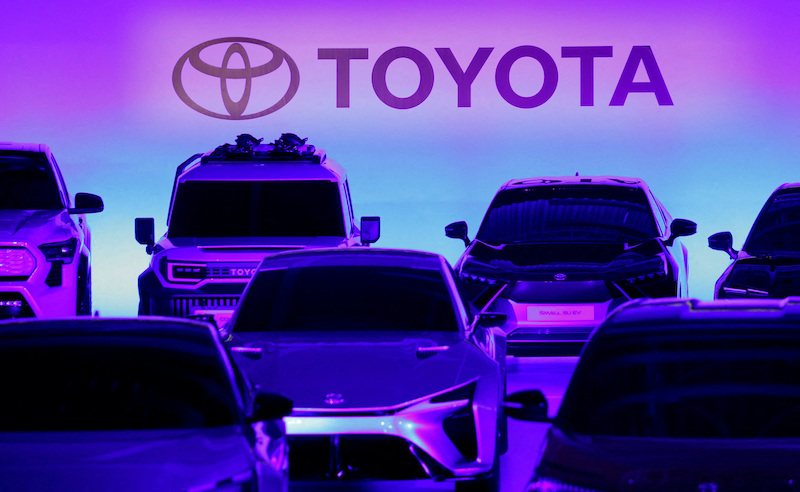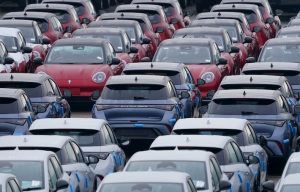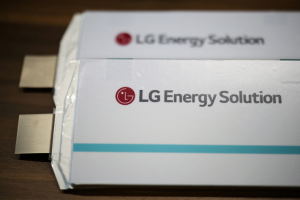Top Japanese carmaker Toyota is set to reveal changes to its electric vehicle (EV) strategy early next year, as it races to narrow the gap with market leaders Tesla and BYD on pricing and performance.
The automaker is expected to detail the EV plan changes for through to early 2026, communicating the adjustments to major suppliers, Reuters reported citing sources.
Toyota has been reviewing a $30 billion, three-stage plan for developing and releasing EVs that it announced late last year. The review comes ahead of a major summit of its suppliers in February, the first such global supplier convention since the pandemic.
Also on AF: Premium Chinese EV Brand Seeks Over $1 Billion in US IPO
The revamp comes despite Toyota holding the view that gasoline-electric hybrids, a market it pioneered with the Prius, will remain a crucial part of the transition to carbon-neutral transport.
Most major automakers expect EVs to account for the majority of vehicle sales by 2030. Green investors and environmental groups have pushed Toyota to move faster as industry-wide EV sales exceed Toyota’s earlier assumptions.
Billionaire Elon Musk’s Tesla made almost eight times the profit per vehicle as Toyota for the third quarter, partly because of its ability to simplify EV production and reduce cost, analysts have said.
Improving EV competitiveness
Toyota has been looking at ways to improve the competitiveness of its EVs planned for this decade.
It aims to do so in part by speeding up the adoption of performance-boosting technologies, from electric drive systems to the electronics that convert power from the grid to energy stored in batteries and more integrated heating and cooling systems.
The changes would be for the successors to Toyota’s first two EVs for major markets, the bZ4X and the Lexus RZ, and are intended to help close the gap with Tesla on cost and performance.
The changes, however, might include delays to some of the EV development programmes originally planned for the three-year period.
The automaker has suspended work on some battery-powered car projects announced last year, while a working group headed by former chief competitive officer Shigeki Terashi looks to improve cost performance and technology in the fast-growing market for EVs.
The working group has been charged with outlining plans to improve Toyota’s EV approach, including considering a potential successor to its new EV platform, e-TNGA.
Boosting factory-floor innovation
Toyota’s EV strategy has focused on the rollout of cars like the bZ4X, the first of a string of battery electric vehicles under the series name “beyond zero”.
The second stage of Toyota’s plan covers the next several years when Toyota has models based on the e-TNGA platform in development, the company has told some suppliers. Adjustments to this phase are the changes likely to be outlined to suppliers early next year.
Now Terashi’s group is considering whether to drop the three-year-old e-TNGA architecture, created by modifying a gasoline car platform, in favour of a dedicated EV platform.
Also on AF: Asian EV Battery Makers Seen Dominating Sector in Europe
E-TNGA was designed so EVs could be built on Toyota assembly lines with gasoline cars and hybrids. But that compromise limits the automaker’s ability to deliver factory-floor innovations that Toyota engineers now recognise as key to Tesla’s strength.
Also, Toyota designed e-TNGA on the assumption it would need to sell about 3.5 million EVs a year, about one-third of its current global volume, by 2030. But industry outlook is for a faster pace of growth.
Toyota has been working with two suppliers Denso and Aisin for its EV reboot.
It has been looking at whether it could expedite the adoption of a new thermal management system jointly developed by Aisin and Denso and potentially a more advanced electric powertrain, or eAxle, from Aisin.
Toyota has also been looking at whether it could introduce in some large premium EVs a just-developed silicone-carbide-based inverter from Denso that would improve charging and help lower manufacturing costs.
Terashi’s role in leading Toyota’s EV strategy review, after being sidelined in the company, has been seen by some as a sign the automaker is closer to a full pivot on EVs.
Over the course of his 42-year career, Terashi has been one of Toyota’s top vehicle planners and a strong advocate of zero-emissions cars, including hydrogen.
He was part of the team that opened the way for Toyota’s cooperation with China’s BYD, the world’s largest EV maker. That resulted in a soon-to-be-marketed, China-only Toyota electric sedan called the bZ3, powered by BYD batteries.
- Reuters with additional editing by Vishakha Saxena
Read more:
Tesla Sees Record 100,000 EV Sales in China in November
EV Maker Vietnam’s First Company to List in US
Hyundai, SK Team up to Build New US EV Battery Plant
Elon Musk’s Tesla Launches Two EV Models in Thailand
























